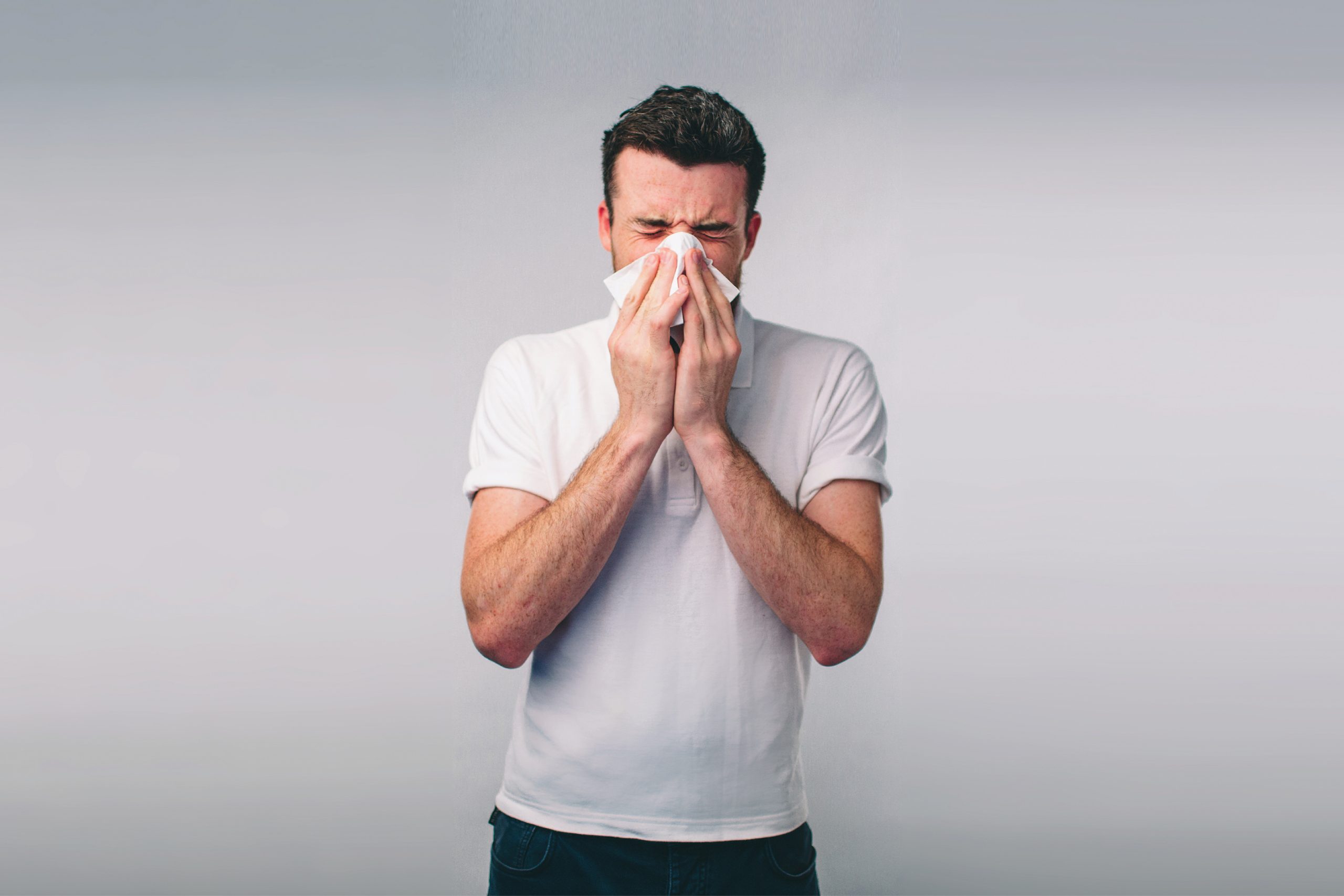Whether it is due to changes in humidity, seasonal weather or flu and cold, the fall can bring with it congestion and discomfort that almost everyone has to deal with. Allergies affect more than 50 million Americans, and the common cold is … well, common! Here’s what you need to know to ensure you can take a deep breath and enjoy autumn.
What makes allergies an issue in fall?
In the fall, there is an increase of both indoor and outdoor allergens. The most common indoor irritant is mold spores. Their growth spikes in the warmth and humidity of summer, and they persist through the fall. Outside, ragweed pollen is the biggest cause of seasonal allergies. Its levels begin to rise in late August, and it can hang around until the first frost.
What are some common symptoms of seasonal allergies?
Seasonal allergy sufferers usually deal with:
- Sneezing.
- Itchy eyes
- Congestion
- Post-nasal drip
- Cough
- Runny nose
Do allergies impact other health conditions?
People with asthma may be impacted by their seasonal allergies. Allergic asthma or allergy-induced asthma can flare up when you are exposed to substances to which you are sensitive. If you have it, you should follow up regularly with a doctor. Controlling your allergies may mean you can use less asthma medication. People with eczema also can experience increased flare ups due to exposure.
Is it possible for a person’s
allergy symptoms to vary over time?
Yes, your allergies can fluctuate over time. Experiencing different environments while traveling may lead to allergy changes when you’re exposed to new allergens. Moving to a different region may cause an increase or decrease in symptoms depending on the mix of vegetation in your new home. Sometimes, it can take time for symptoms to develop. For example, pollen allergies usually take a few seasons to manifest because it takes exposure to become sensitized. Reactions to indoor allergens usually manifest sooner because the exposure is more consistent.
Are there ways to manage seasonal allergies without medication?
Allergies are your immune system’s inflammatory response to a foreign substance. They happen seasonally when your body overreacts to something airborne in the environment, usually pollen or mold. To avoid sneezing, congestion, a runny nose and other bothersome symptoms, there are simple steps you can take to manage your exposure to allergens.
- Monitor pollen count. Check pollen counts in your area—they’re often included with TV or radio weather reports or you can easily find them online. To avoid pollen in your home, don’t leave the windows open when pollen counts are high. Limit outdoor activity in the morning or on dry, windy days because that’s when pollen counts are highest. The best time to head outside is after it rains, which helps clear pollen from the air.
- Wear a mask when mowing the lawn or doing other outdoor chores. To avoid allergens when raking leaves or completing other seasonal outdoor work, make sure your nose and mouth are covered.
- Clean your vents before turning on your heat for the first time. Allergens can get trapped during the spring and summer, and they’ll fill the air once the furnace turns on. Also use a HEPA filter in your heating system to remove particles from the air.
- Use a dehumidifier. Removing moisture from the air will help stop mold and dust mites from thriving in your home.
- Groom and wash your pets regularly. If they spend time outside, that will keep them from tracking pollen or other allergens inside.
- Rinse your sinuses. Rinsing is an easy way to reduce congestion. It directly flushes out mucus and allergens from your nose.
How can I tell my allergies apart from a cold, the flu or COVID-19?
The common cold, seasonal allergies and COVID-19 can sometimes manifest in similar ways, especially now that vaccines and new variants are resulting in milder cases of COVID-19. Despite some indistinguishable symptoms, there are some key differences. Think about your history and consider what symptoms you’ve previously experienced in the fall. If you’re dealing with a fever, aches and pains, nausea or a sore throat, odds are it’s not your allergies making you sniffle and sneeze. Allergy symptoms also tend to last longer than the common cold.
Sources: Mayo Clinic, The University of Chicago Medicine








